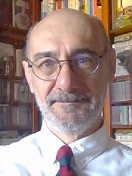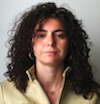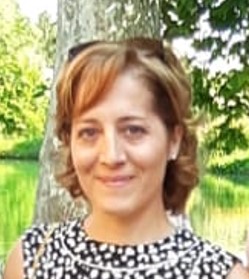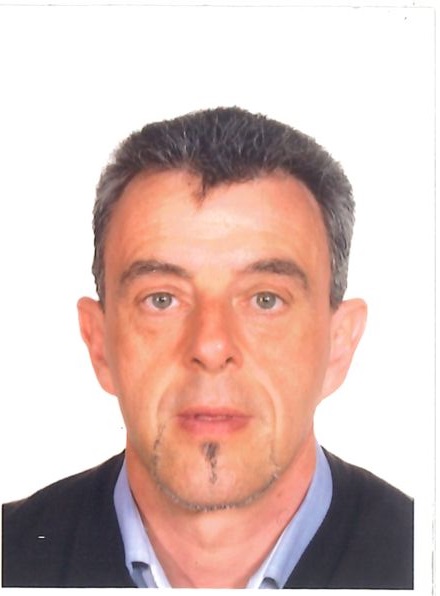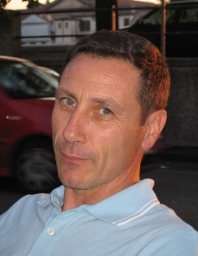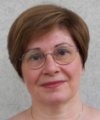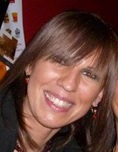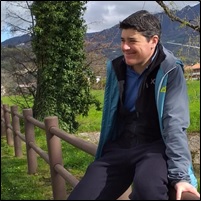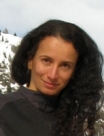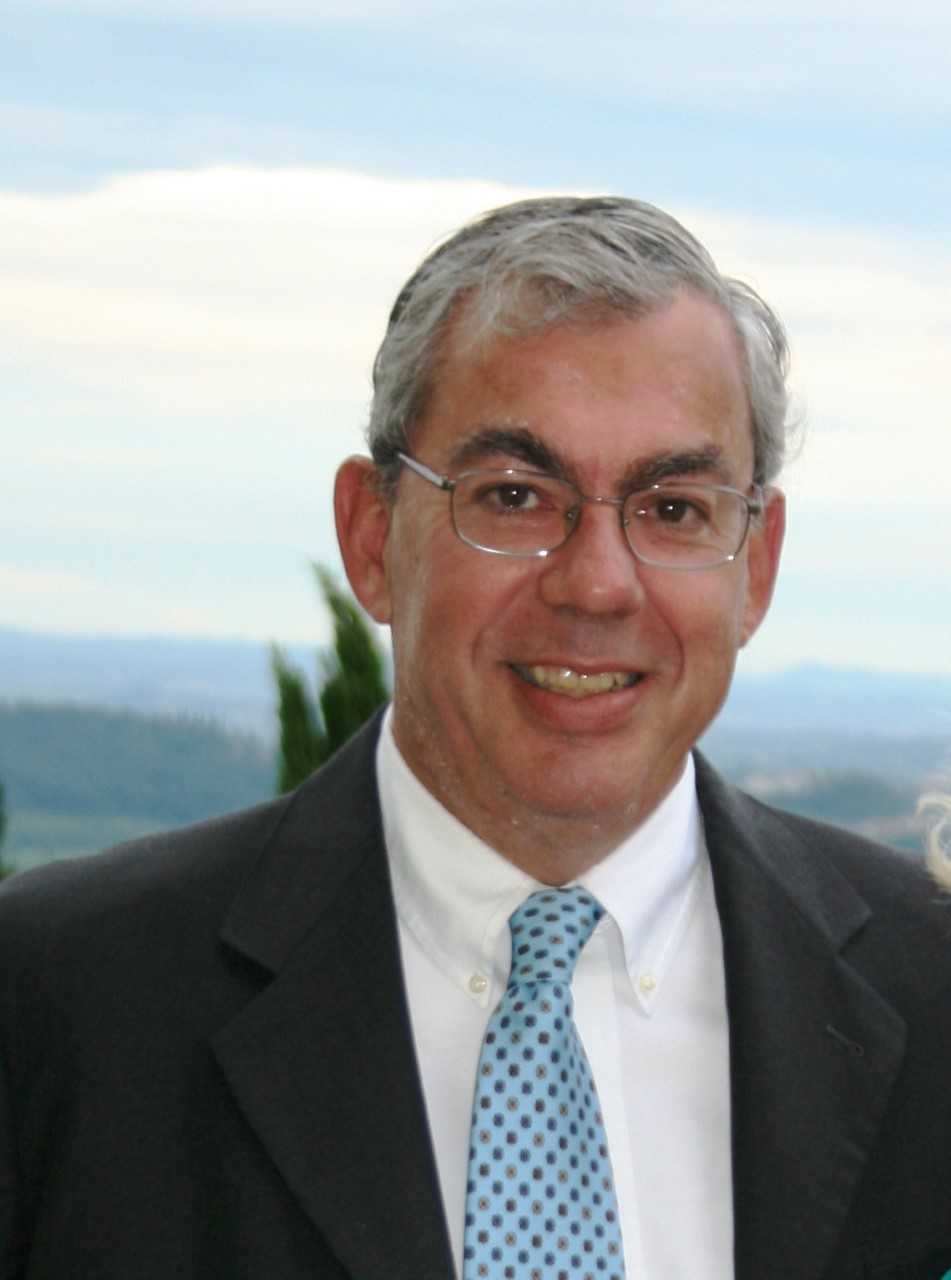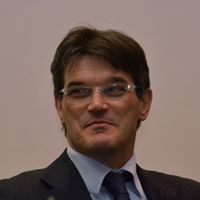Studying at the University of Verona
Here you can find information on the organisational aspects of the Programme, lecture timetables, learning activities and useful contact details for your time at the University, from enrolment to graduation.
Academic calendar
The academic calendar shows the deadlines and scheduled events that are relevant to students, teaching and technical-administrative staff of the University. Public holidays and University closures are also indicated. The academic year normally begins on 1 October each year and ends on 30 September of the following year.
Course calendar
The Academic Calendar sets out the degree programme lecture and exam timetables, as well as the relevant university closure dates..
| Period | From | To |
|---|---|---|
| 1° semestre | Oct 3, 2022 | Jan 20, 2023 |
| 2° semestre | Mar 1, 2023 | May 27, 2023 |
| Session | From | To |
|---|---|---|
| Appelli Sessione invernale | Jan 23, 2023 | Feb 24, 2023 |
| Appelli Sessione estiva | Jun 5, 2023 | Jul 7, 2023 |
| Appelli Sessione autunnale | Aug 28, 2023 | Sep 29, 2023 |
| Appelli Sessione invernale straordinaria | Jan 23, 2024 | Feb 24, 2024 |
| Session | From | To |
|---|---|---|
| Sessione estiva Esame di Laurea | Jul 10, 2023 | Jul 29, 2023 |
| Sessione autunnale Esame di Laurea | Oct 23, 2023 | Nov 20, 2023 |
| Sessione invernale straordinaria Esame di Laurea | Mar 18, 2024 | Apr 19, 2024 |
| Period | From | To |
|---|---|---|
| Vacanze di Natale | Dec 24, 2022 | Jan 1, 2023 |
| Vacanze di Pasqua | Apr 7, 2023 | Apr 10, 2023 |
| Festa della Liberazione | Apr 25, 2023 | Apr 25, 2023 |
| Festa dei Lavoratori | May 1, 2023 | May 1, 2023 |
| Festa della Repubblica | Jun 2, 2023 | Jun 2, 2023 |
| Ognissanti | Nov 1, 2023 | Nov 1, 2023 |
| Festa dell'Immacolata | Dec 8, 2023 | Dec 8, 2023 |
| Description | Period | From | To |
|---|---|---|---|
| Periodo per i tirocini e le esercitazioni | annuale | Oct 3, 2022 | Sep 30, 2023 |
| Description | Period | From | To |
|---|---|---|---|
| Corsi di lingua straniera - consultare calendario CLA | Oct 3, 2022 | Sep 30, 2023 |
Exam calendar
Exam dates and rounds are managed by the relevant Exercise Science Teaching and Student Services Unit.
To view all the exam sessions available, please use the Exam dashboard on ESSE3.
If you forgot your login details or have problems logging in, please contact the relevant IT HelpDesk, or check the login details recovery web page.
Should you have any doubts or questions, please check the Enrollment FAQs
Academic staff
 valentina.biino@univr.it
valentina.biino@univr.it
 paola.cesari@univr.it
paola.cesari@univr.it
 rosarita.cuccoli@univr.it
rosarita.cuccoli@univr.it
 lonardifabiola@gmail.com
lonardifabiola@gmail.com
 alberto.nuvolari@gmail.com
alberto.nuvolari@gmail.com
 gilberto.pilati@univr.it
gilberto.pilati@univr.it
 angeloluigi.sangalli@univr.it
angeloluigi.sangalli@univr.it
 fabio.sartori@univr.it
fabio.sartori@univr.it
 roberto.scarsini@aovr.veneto.it
roberto.scarsini@aovr.veneto.it
 stefano-venturi@libero.it
stefano-venturi@libero.it
Study Plan
The Study Plan includes all modules, teaching and learning activities that each student will need to undertake during their time at the University.
Please select your Study Plan based on your enrollment year.
1° Year
| Modules | Credits | TAF | SSD |
|---|
Biochemistry of exercise
Principles of sport management
Introduction to chinesiology and sport
2° Year activated in the A.Y. 2023/2024
| Modules | Credits | TAF | SSD |
|---|
Introduction to movement analysis and motor control
Sport and exercise psychology
Training Methodology
3° Year It will be activated in the A.Y. 2024/2025
| Modules | Credits | TAF | SSD |
|---|
Preventive and adapted physical activity
Pharmacology and cardiology applied to physical activity
Diseases of the Locomotor Apparatus
Teaching individual and team sports
| Modules | Credits | TAF | SSD |
|---|
Biochemistry of exercise
Principles of sport management
Introduction to chinesiology and sport
| Modules | Credits | TAF | SSD |
|---|
Introduction to movement analysis and motor control
Sport and exercise psychology
Training Methodology
| Modules | Credits | TAF | SSD |
|---|
Preventive and adapted physical activity
Pharmacology and cardiology applied to physical activity
Diseases of the Locomotor Apparatus
Teaching individual and team sports
| Modules | Credits | TAF | SSD |
|---|
1 MODULE TO BE CHOSEN BETWEEN THE FOLLOWING1 MODULE TO BE CHOSEN BETWEEN THE FOLLOWINGLegend | Type of training activity (TTA)
TAF (Type of Educational Activity) All courses and activities are classified into different types of educational activities, indicated by a letter.
Physical education and games (2023/2024)
Teaching code
4S004082
Teacher
Coordinator
Credits
3
Language
Italian
Scientific Disciplinary Sector (SSD)
M-EDF/01 - PHYSICAL TRAINING SCIENCES AND METHODOLOGY
Period
2° semestre SM dal Feb 26, 2024 al May 30, 2024.
Courses Single
Authorized with reserve
Learning objectives
Achieve theoretical and methodological knowledge for an effective professional practice, in particular: • Learn the latest theories and methodologies of teaching a game • Bring to the attention of the students the opportunity to recover the high cultural diversity of games • Strengthen the consciousness of the role of education, of the role of culture, of the role of the expressive art of playing to promote the wellness of the general development of the human being as an individual and his community • Become aware of the relationship between cultures and gaming practices and the adoption of healthy life-styles • Acquire knowledge and skills about traditional games in Italy, in Europe and in the world • Develop and learn the methodologies and techniques about shared rules • Consolidate a methodology and a didactic base for teaching, to watch and to give a mark of motor skills in the practices of games and in traditional sports • Gain practical experience of the gaming activities with the use of specific tools.
Prerequisites and basic notions
The candidate must have personally developed some gaming experiences, addressed during the practical lessons related to the module.
Program
The course includes 24 hours of lessons, organized in two ways: meetings with training and theoretical information, and practical activities. Minimum activity attendance is recommended for at least 75% of lessons. For lower frequencies, some forms of integration are foreseen. Online teaching support Theme 1: GAME AS A "GYM" FOR SOCIAL RELATIONSHIPS Concepts and definitions, theories, types of games and classifications. Sensory games, symbolic games, traditional games, pre-sports games. The playful experience in the different evolutionary stages. Playful behavior as a skill: action, gestures, body language. Comparison and motor practice in social, sporting and recreational entertainment activities. The game cards. Theme 2: MOTOR SKILLS AND PSYCHOMOTOR DEVELOPMENT Taxonomy of educational objectives in the psychomotor field. Sensori-motor intelligence and the learning of motor skills through play Education to play. Benefits and dysfunctions of the game. The alphabet of movement between games and sports. Basic gaming skills. Research, analysis and comparison of the main games. Game tools. Theme 3: LEARNING TO PLAY AND PLAY TO LEARN Develop and reveal skills. Motor learning. The conduct of the group, the pedagogical triangle. Teaching styles: guided, reciprocal Autonomous teaching. The process of teaching action. Teaching conditions: context, means and aids, evaluations. Rules of the teacher/animator. Teaching level: acquire, apply, create. Theme 4: FROM GAME TO SPORT The figure of the games coordinator, their management. Know the game and its rules. Cooperative and competitive situations in sport; Multipurpose movement games. pre-sport gaming and modified sport. Approach to the specific gestures of various sports games. Theme 5: EVOLUTION AND TRANSFER OF MOTOR SKILLS AND SKILLS IN THE PRACTICE OF STRUCTURED GAME The game in physical preparation. Comparison and motor practice in social, sporting and recreational entertainment activities. Test. Safety instructions. Selection of games: handball, volleyball, basketball, rugby. Game plans. Theme 6: GAMES WITH DIVERSIFIED TOOLS AND MATERIALS With conventional materials, with alternative materials, without materials. Natural and artificial space. Materials for traditional and alternative sports, recreational games. Theme 7: GAME AND ANIMATION Animated, socializing and adapted games. Play as socialization, heritage and cultural identification. Popular and traditional game. Individual games, in pairs, one against all, paradoxical. Comparison and motor practice in social, sporting and recreational entertainment activities. Tools for observation, monitoring, verification and evaluation of gaming skills and social dynamics. The game cards. Theme 8: SPORTS OF THE “POPULAR TRADITION” Spherical Sports: Bracelet ball, Tambourine, Hit ball, Eh ball, Elastic ball, Light fist ball. Theme 9: PLAY AND DISABILITY - ADAPTIVE SPORTS Sports practiced by people with different types of physical, intellectual and sensorial disabilities. The three main branches: the deaf, the physically disabled (including blind and visually impaired athletes) and the mentally disabled. Organization of the game with respect to the medium, the rules, the social dynamics. Disciplines at the Summer Paralympic Games. Disciplines at the Winter Paralympic Games. Non-Paralympic sports. The game cards. Theme 10: GAME EDUCATION AND HEALTH PROMOTION Movement games as a tool for health protection. The evolution of gaming practices from ancient times to the present day. Play as a language in different cultures. Correlation between gaming cultures and practices and the adoption of healthy lifestyles. Ties with the territory, life and historical memory. Recreational-cultural programming.
Bibliography
Didactic methods
The course includes 24 hours of lessons, organized in two ways: meetings in the presence of training and theoretical information, practical activity. The minimum attendance to the activities is recommended for at least 75% of the lessons. For lower frequencies, forms of integration are envisaged. Online teaching support Within the module some learning units related to the game will be dealt with and the planning sheets will be developed.
Learning assessment procedures
The exam certification will take place through an oral interview structured as follows: 1. Presentation of a Learning Unit and Game Design Sheet prepared in writing at the end of the course, chosen by the candidate, containing correct indications of the bibliographic references and sources (topic and criteria must be agreed with the teacher). The final production will be discussed orally. 2. Analysis and discussion of some topics covered during the course concerning teaching, game methods, methodologies used and styles of conducting the playful experience.
Evaluation criteria
The final evaluation of the module will take into account the drafting of the Game Design Sheet and the related Learning Unit discussed during the exam and the topics that will be addressed in the oral interview. The topics examined will concern what is covered during the course both in theoretical and practical form.
Criteria for the composition of the final grade
The evaluation of the work produced, including the outcome of the oral interview, will be out of 30/30 and published in the exam list. If not sufficient or in the absence of attendance at lessons equal to or less than 75% per 24 hours, oral assessment of the notions/experiences learned during the course and in-depth analysis of the topics covered relating to the program and the recommended texts.
Exam language
Italiano
Sustainable Development Goals - SDGs
This initiative contributes to the achievement of the Sustainable Development Goals of the UN Agenda 2030. More information on sustainability



Type D and Type F activities
I Regolamenti dei corsi di laurea e di laurea magistrale di scienze motorie prevedono che gli studenti possano completare il proprio piano didattico, frequentando oltre agli insegnamenti obbligatori anche delle attività formative a scelta, per approfondire alcuni aspetti tematici o settori di interesse, in coerenza con il proprio percorso formativo.
Le attività formative a scelta di ambito D sono indicate all’interno del piano didattico del corso di studio prescelto, mentre le attività formative di ambito F sono individuate da una apposita commissione di docenti. Queste ultime attività possono essere conferenze, seminari, webinar, altro e vengono acquisite con una valutazione e non con un voto in trentesimi.
PERCORSO ELETTIVO
E' possibile personalizzare il proprio piano didattico, selezionando determinate attività a scelta e attivando così un "percorso elettivo" di preferenza tra quelli proposti dal Collegio didattico di Scienze motorie.
Ai link sotto indicati si possono trovare le tabelle con le attività a scelta e i percorsi elettivi disponibili e le indicazioni per l'inserimento delle attività a scelta nel piano didattico da compilare a cura dello studente:
Tabelle delle attività a scelta di tipo C, D, F
Regole per la compilazione del piano didattico con le attività a scelta
COMPETENZE TRASVERSALI
| years | Modules | TAF | Teacher |
|---|---|---|---|
| 3° | Physical bases of exercise prescription | D |
Jan Tom Boone
|
| 3° | Advanced nutrition for sports | D |
Silvia Pogliaghi
(Coordinator)
|
| 3° | Sport physiology | D |
Silvia Pogliaghi
(Coordinator)
|
| years | Modules | TAF | Teacher | |
|---|---|---|---|---|
| 3° | Theory and pedagogy of nordic walking | D |
Barbara Pellegrini
(Coordinator)
|
|
| 2° 3° | Public health applied to exercise | D |
Francesca Moretti
(Coordinator)
|
|
| 2° 3° | Statistics applied to movement sciences | D |
Maria Elisabetta Zanolin
(Coordinator)
|
|
Career prospects
Module/Programme news
News for students
There you will find information, resources and services useful during your time at the University (Student’s exam record, your study plan on ESSE3, Distance Learning courses, university email account, office forms, administrative procedures, etc.). You can log into MyUnivr with your GIA login details: only in this way will you be able to receive notification of all the notices from your teachers and your secretariat via email and also via the Univr app.
Graduation
List of thesis proposals
| theses proposals | Research area |
|---|---|
| ANTROPOMETRIA E COMPOSIZIONE CORPOREA NEL CALCIO | Various topics |
| ANTROPOMETRIA TRIDIMENSIONALE - ESEMPI APPLICATIVI | Various topics |
| Controllo posturale e locomozione in età evolutiva | Various topics |
| EFFETTO DELLA VIBRAZIONE CORPOREA TOTALE SU PEDANA | Various topics |
| Feedback Aumentativo e Apprendimento Motorio | Various topics |
| Il ruolo della fatica cognitiva nella prestazione motoria e nella percezione corporea: teorie di riferimento e strumenti di indagine | Various topics |
Gestione carriere
Student mentoring
Orario lezioni
L’orario delle lezioni comprende
Lezioni Frontali in aula
Esercitazioni e laboratori
Questi ultimi sono organizzati per gruppi dai singoli docenti responsabili dei corsi.
L'orario è pubblicato nel portale studenti
Modalità di frequenza
Vige l'obbligo di frequenza al 70% come specificato nel Regolamento di ogni singolo corso di laurea e laurea magistrale:
Ulteriori informazioni:
L'accesso alle pagine Moodle dei singoli insegnamenti è vincolato alla compilazione del piano di studi.
App Univr Lezioni, FAQ e guida all'utilizzo sono disponibili al seguente link: orario-lezioni-e-modalita-di-frequenza
Comunicati: Avvisi per studenti
Internships
Internships are aimed at enabling students to gain direct knowledge of the world of work and to acquire specific professional skills.
Internships are carried out under the responsibility of an individual lecturer, and can be carried out in professional firms, public administration bodies and companies recognised by the University of Verona.
Any CFU credits gained by doing internships will be recognised and recorded by the University in accordance with the relevant University regulations in force (Regolamento d’Ateneo per il riconoscimento dei crediti maturati negli stage universitari).
For further information on internships, please go to: https://www.univr.it/it/i-nostri-servizi/stage-e-tirocini.
Student login and resources
Recupero Obblighi Formativi - OFA
I corsi di supporto per il recupero degli Obblighi Formativi aggiuntivi - OFA di Chimica, Fisica, Matematica - sono organizzati annualmente e sono segnalati direttamente nell'orario delle lezioni del 1° anno ► vedi pagina.
Al termine di ciascun corso frequentato gli studenti dovranno sostenere e superare una prova scritta per colmare il debito entro il 15 dicembre dell'anno successivo, per potersi iscrivere al 2° anno.
►Date e orari degli appelli sono indicati nel Calendario Didattico - Calendario Esami.
In caso di mancato superamento degli obblighi formativi entro il 15/12, lo studente resterà iscritto al 1° anno anche per l'anno successivo come ripetente, dovrà sostenere la verifica di recupero in un altro appello e NON non potrà frequentare o sostenere gli esami del 2° anno.
Certificazione medica di idoneità
Riferimenti normativi principali: DM 24 aprile 2013 art. 3, GU 169 del 20-07-2013; Decreto del Ministro della Salute dell’8 agosto 2014 e s.m.i.
Per frequentare le attività dei corsi di Laurea e Laurea magistrale di Scienze motorie è obbligatorio presentare la certificazione medica di idoneità fisica per attività sportiva non agonistica. La certificazione è necessaria per accedere alle attività pratiche-esercitative e al tirocinio.
à COME OTTENERE LA CERTIFICAZIONE
La certificazione - riportante l’indicazione che è stato eseguito l’ECG a riposo - può essere rilasciata da:
- centri o servizi di medicina dello sport delle ASL (ora ATS) e delle aziende ospedaliere
- istituti della Federazione Medico Sportiva Italiana
- centri pubblici o privati autorizzati:
- dai medici di medicina generale di libera scelta, relativamente ai propri assistiti;
- dal medico specialista in medicina dello sport.
L’ECG a riposo deve essere ripetuto annualmente.
E’ ammesso anche il certificato medico di idoneità alla pratica sportiva agonistica, per chi ne fosse già in possesso.
à SCADENZA PER LA PRESENTAZIONE
La certificazione medica deve essere prodotta al momento dell'immatricolazione e, comunque, entro l’inizio delle lezioni alla Segreteria Corsi di Studio Scienze motorie. Spetta agli studenti rinnovarla annualmente alla scadenza - per ogni anno di iscrizione in corso o fuori corso. La Segreteria effettuerà periodicamente dei controlli sulla consegna dei certificati.
NOTA: Studenti immatricolati a seguito di SUBENTRO/RIPESCAGGIO/TRASFERIMENTO IN INGRESSO: se non è possibile rispettare la scadenza di presentazione del certificato sopra indicata, avvisare la Segreteria Corsi di Studio Scienze, scrivendo all’indirizzo certmed.scienzemotorie@ateneo.univr.it
à MODALITA’ DI CONSEGNA
La certificazione va inviata alla Segreteria Corsi di Studio Scienze motorie dalla propria e-mail istituzionale nome.cognome@studenti.univr.it all’indirizzo certmed.scienzemotorie@ateneo.univr.it.
Esami propedeutici
Alcuni insegnamenti del piano didattico sono definiti "propedeutici", perchè permettono di acquisire le conoscenze necessarie per affrontare lo studio di insegnamenti successivi. Di conseguenza, è obbligatorio superare gli esami degli insegnamenti propedeutici prima di sostenere gli esami di un anno seguente. Le propedeuticità presenti sono indicate di seguito nella tabella:
| Anno | Esami propedeutici | Anno | Esami che richiedono il superamento di propedeuticità | |
| 1 | Biologia | prima di | 2 | Fisiologia |
| Anatomia umana | ||||
| 1 | Biologia | prima di | 2 | Biomeccanica |
| Anatomia umana | ||||
| 1 | Biologia | prima di | 2 | Tecniche e metodologie dell'allenamento |
| Anatomia umana | ||||
| Biochimica del movimento | ||||
| 2 | Fisiologia | |||
| 1 | Biologia | prima di | 3 | Tecniche e didattica degli sport individuali e di squadra |
| Anatomia umana | ||||
| Biochimica del movimento | ||||
| 2 | Fisiologia | |||
| Tecniche e metodologie dell’allenamento | ||||
| 1 | Biologia | prima di | 3 | Attività motorie preventive e adattate |
| Anatomia umana | ||||
| Biochimica del movimento | ||||
| 2 | Fisiologia | |||
| Tecniche e metodologie dell’allenamento | ||||
| 1 | Biologia | prima di | 3 | Malattie dell'apparato locomotore |
| Anatomia umana | ||||
| 2 | Fisiologia | |||
| 1 | Biologia | prima di | 3 | Farmacologia e cardiologia applicate all'attività motoria |
| Anatomia umana | ||||
| 2 | Fisiologia | |||

 0458028142
0458028142

